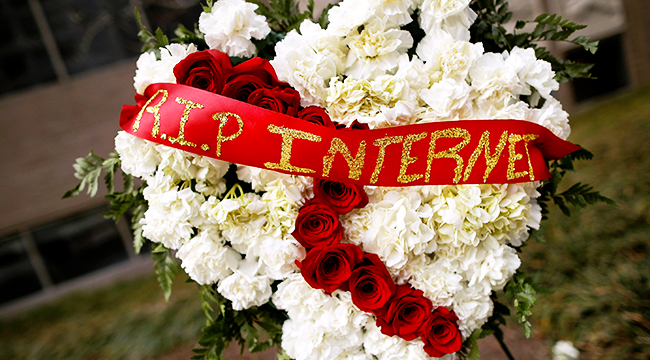
What does the future of the internet without net neutrality look like? There are no shortage of apocalyptic scenarios, although they all pale next to the legal nightmare that will be what happens when the FCC almost certainly abdicates its role.
The future of a supposedly non-net-neutral world is a weird, messy one, and a broad-based apocalypse is less likely than a world where even something as simple as radio waves become a matter of the haves and the have-nots.
- It’s very easy to imagine a world without net neutrality: Just look at your phone. For much of the time smartphones have existed, there’s been zero regulation requiring net neutrality. Indeed, as we’ve said before, your “unlimited” plan is actually quite limited. Considering half of all web traffic comes from mobile devices, the apocalypse has been here for a while.
- In fact, much of what people are worried about has already happened: Cable providers were completely free to cap how much data you use and exempt its services, to strongarm services like Netflix into paying for a “fast lane”, and other egregious abuses. All the FCC is doing, in the end, is telling these companies that they can keep doing this.
- The question isn’t what internet service providers, or ISPs, will do. It’s how internet companies, states, and cities will react: The reality is, Google, Netflix, Amazon, all the services that we use now, either can pay the fees ISPs are demanding of them or simply have so much leverage and can afford enough lawyers that ISPs don’t dare anger them. The question for them is, is it cheaper to just pay the fees and leave everybody else to their fate? Or do they try to build their own internet and get around it?
- Building your own internet isn’t as hard as you might think: This is already being done, most notably in Detroit with a mesh network, which is the most logical and feasible technology at the moment. But there’s plenty of others, if you’re an internet-dependent company with deep pockets. Microsoft is hard at work using TV spectrum to blanket rural areas in high-speed internet, called white-space broadband. While Google has “paused” its program installing gigabit fiber to America, it could easily fire that up again. Amazon is owned by a man who has his own rocket company and could start putting satellite networks in the air. And, of course, cities and towns can, and will likely be forced to, build their own networks.
- And cities and states will likely have more leverage than people think: Recently, Philadelphia forced Comcast into a whole host of concessions to keep providing internet to the city. Other cities noticed. The lack of net neutrality will only make that more intense.
- But that creates a new problem as gaps grow between those with access and those without: Already, petty squabbles between internet giants are causing problems. Imagine if Google decides to make watching Amazon Prime more annoying, or Amazon decides to block Apple from using its network if Apple won’t give it a bulk discount on iPhones. And conversely, it’s all well and good for cities to demand net neutrality within their limits, but do suburbs and small towns have the same leverage? Consider Chicago is actually offering Amazon the income taxes of its workers to open a second headquarters there.
- And worse, a lot of the country won’t care: The vast majority of Americans live in a small handful of metro areas, most of which will likely be able to broker their own net neutrality deals. So small towns miles from the nearest city may well be marooned digitally, with nobody to help them.
- This is the worst case scenario, of course: There are a lot of ways out of this. Congress could finally update the antiquated laws dictating how the internet is controlled. Court battles over the FCC’s filings could make net neutrality inassailable. Or, simply, what Ajit Pai, head of the FCC and spearhead of this law, claims he’s advocating for actually happens: Tech upstarts knock over a bunch of seemingly invincible behemoths. It has happened before, after all.
The rub to that final point is a big one: Considering how essential the internet is to our lives, and how unempowered our work and home lives feel without it, do we really want to wait?
